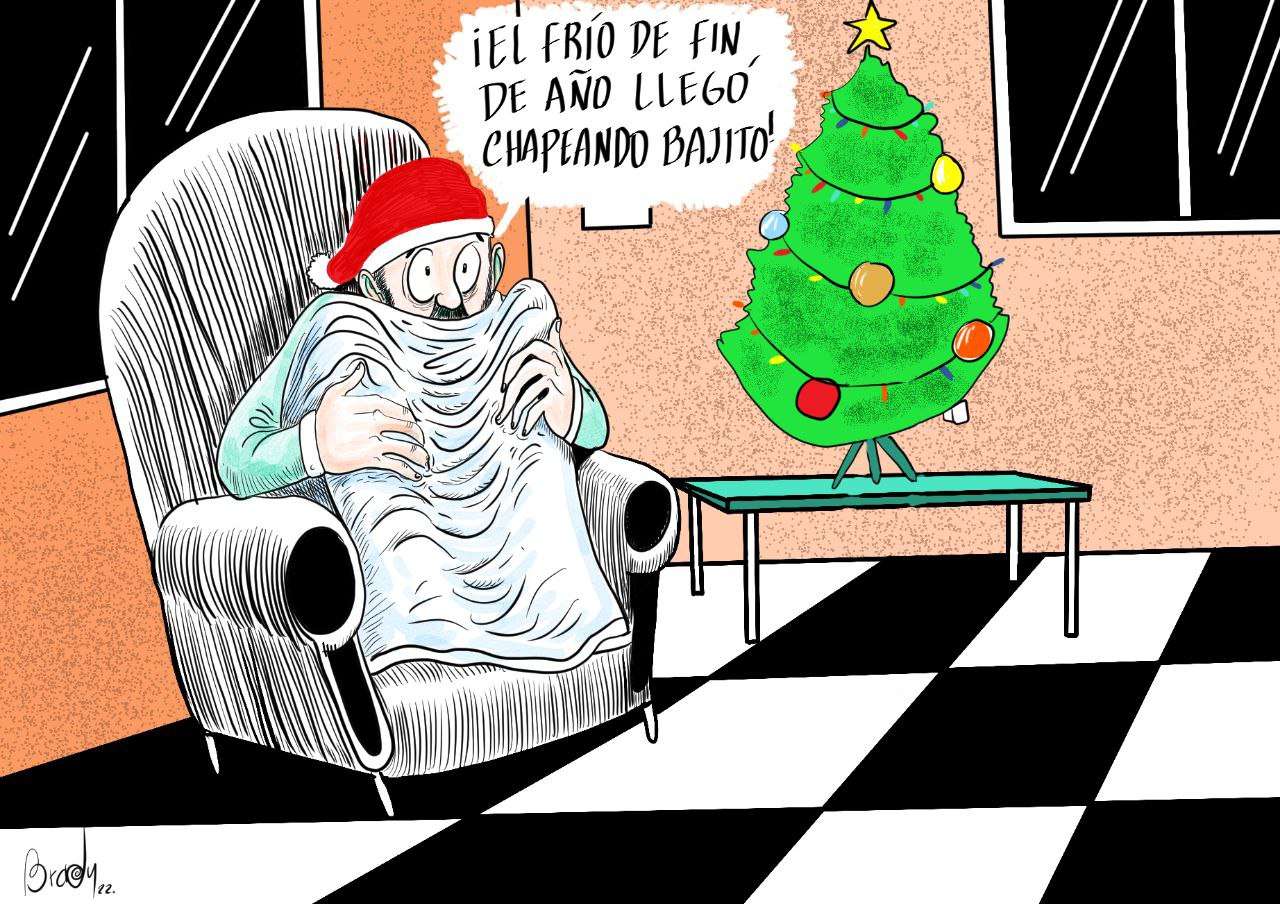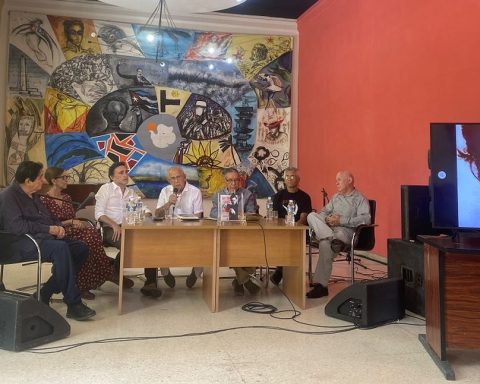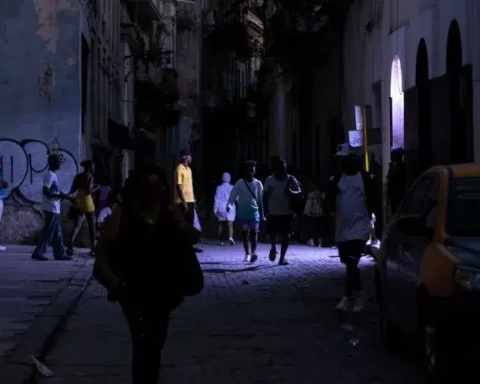One of the phenomena that contributes the most to the transformation of language is the use that not only certain words acquire, but also the recurrence of certain procedures in everyday speech. So that over the years what was a deviation, or exception to the rule, acquires stability and develops new fields at any level of the language.
Such seems to be the case of the widespread use of diminutives in the daily speech of Cubans, which has given rise to expressions that are very much ours.
Many of our traditional sweets, for example, incorporate a diminutive element without us thinking of a diminished version of something greater: “tortica”, “boniatillo”, “senorita”, “merenguito”, “coquito”, “tetico” …If we say that we are going to buy a pack of “puppies”, it does not mean that they are a small version of the animal; In the same way that a “tank” blouse is not inferior in size to a tank top.
The use of the diminutive tends to express a decrease in the size, quantity, importance or scope of something; but it can also synthesize a relationship of affection or affection, and even incorporate a derogatory nuance.
The list of uses of the diminutive in the Spanish that we speak today in Cuba is extensive, sometimes with a very complex combination of these nuances, and also very island meanings. In general, we can say that there is a preference in the formation of diminutives for the endings -ito/ita, -tico/tica, with -illo/illa (as in baratillo, or flea market) being less common, which are more common in the peninsular norm.
In Spain, for example, “chiquillo” is more common than “chiquito” to refer to a child, and “chiquito” or “chiquita” among us Cubans not only refers to that primary meaning, but also designates, with a derogatory nuance or informally, to any young person. Hence, to express only a notion related to size, the “chiquitico/a” is introduced, and within the category of the young, distinctions are established according to the speaker between “little boy” or “menorcito/a”. If the child is short, we say that he is “short” or “small”, and if we evaluate how much he has grown or how his behavior should be in attention to age, that he is already “big”. We even have the variant “little boy”, which is usually also used with a vocative function: “Oh, little boy”.
It is common for parents to develop a tendency to constantly use diminutives to refer to their children’s body parts, although the same behavior is generally perceived in everyone who comes into contact with a baby: the “little head”, the “little hand” , the “little foot”, the “little heart”, the “little finger”, the “little bottom”, the “little eye”, the “little hair”, the “little teeth”, etc. Even this propensity to use the diminutive contaminates other activities related to the life of the infant: preparing the “comidita” or the “milk”, warming the “chip” or the “little water” to give it a “bath”, putting it to bed in the “crib”. ”, put on his “clothes”, and so on. It is not strange that this is a very common behavior also as an expression of affection and pampering between the members of a couple, which tends to express that type of parental care for the other.
“Bajito” and “bajitico” are not only references to height, but they can express among Cubans the concrete or abstract level of something: “On the beach I always bathe low”, “The attendance was low”, “ He took a low note”), and also the temperamental condition of someone who gets angry or loses his temper: “They wanted to put their foot in him and he got short.” A similar connotation would have for this behavior the expression “to get sick”, although being “ill” is also a sign of illness, with intensification through reduplication: “The mother-in-law is sick-sick”.
Many objects, linguistically traversed by the use of the diminutive, have come to integrate a new universe of things in which it is no longer possible to distinguish precisely what separates them from their original relative. This is the case, for example, of many articles of clothing: the “warm”, the “pulovito”, the “shorcito”, the “dress”, the “trusita”, the “blouse”. I don’t know what difference there is between a piece of cloth and a “little cloth”, between a trip and “little trip”, between fear and “fear”, between disgust and “disgust”, between affection and “little darling”, between the poor and the “poor thing”, between the cold and the “friíto”, between a jump and a “jump”, between the new and the “new”, between a drink and a “little drink”, between a mouthful and a “ buchito”, between a pig and a “little pig”, between a hunger and a “little hunger”…
I know it may seem complex, but in Cuban it is “simple”: you can be ugly and also “ugly”, heavy and “heavy”, jealous and “jealous”, meddlesome and “meetidito”, give an edge and a “filito” , to be skinny and to be “skinny”, to eat little or to eat “little”, to walk straight or “right”, to take the road or the “little path”, to go slowly and to go “slowly”, to solve a matter or a “issue”, give a gift or a “little gift”, take a package or a “package”, put together a relax or a “relax”, be careful or be “careful”, go on an errand or even “errand”, have a dream or a “dream”, take a few pounds or “little books”, do a favor or a “little favor”, be in the fight or in the “little fight”, go to Regla in the “lanchita”, and if we are looking for someone, surprise him or her with: “I was looking for you, my mythical”.
Much love is expressed by our diminutives in the field of gastronomy: “cafecito”, “tecito”, “cervecita”, “meriendita”, “roncito”, “refresquito”, “pancito”, “lunch”, “lunch”, “snack ”… In permanent diminutive the “friticas” and the “mojito” have remained, and with them the “jabita” and the “jevitos”, the “cuartico” that is “just the same”, the game of the “little ball” and the people in the bus who do not take a “little step”. In the same way, they open a new dimension of time that only seems to work on the island, which does not mean less delay but procrastination, opening in the universal flow of matter: that works like this a “little time” ago, wait a “moment”, You have to give me a “little chance”, I’ll be back in a “minute”…
In Cuba you can be a “little hand”, a “consortium”, my “little brother”, my “partner”; you can be “so and so” or “so and so”; without having children a “daddy” and a “daddy”, or a “mommy” and a “mommy”; compañero and “compañerito”, the gentleman and the “señorito”, and even “mijito” and “mijita”, not to mention who, from the cradle, they named Margarita. To fry pork rinds you need a “calderito” and if our mother makes us some fried “eggs” she asks us if they are “hard” or “soft”. The plantain, if it is ripe or fried, is no longer a plantain, it is “little plantain”. And if the money is little, it is a “little money” or a “little piece of land” or a “little one”. And if what they charge us may seem expensive, then we loosen up with one hundred “pesitos namá”. With pity or pity, we ask for a “cigarrito”, or at least a “cachaíta”. And we go for the “shade” with our “tumbaíto”.
We have entered the matter for “high” but counting for the “low”. So surely many of our diminutives are left out. For now let’s continue making the “list” to enter the new year with new “little things”. Give the house a “sweep”, put a “recharge” to keep in touch and in 2023 we will meet again to continue examining Cuban Spanish “a la cortico”.
Happy little party, cumbanchita or motivito.

















